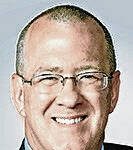Columbus is getting better at having honest conversations.
It’s good to see the Economic Development Board make a candid assessment of the city’s strengths and weaknesses regarding attracting new industries, for instance.
Looking at the pros and cons of tax abatements as an economic-development tool is another example. These demonstrate the kind of focus that positions us well for a broad enhancement of prosperity.
But they are secondary to the main issue the city faces. The key question for Columbus is how to enjoy relative normalcy as long as possible, situated as it is in a gravely imperiled and sharply declining America.
The current report card shows us squandering that opportunity. We’re deciding to be a party to that decline.
On that level, the conversation among us is fraught with the buzzwords of an agenda at odds with individual liberty: “privilege,” “social justice” and “protected class.”
Herein lies the Great Cultural Dare of which I’ve written in past columns. A response along the lines of “Do you want an unjust, non-welcoming community?” from some quarters is inevitable.
It can be pretty loud. Explanations of how the free market organically solves such matters, or reminders that no one has a right not to be offended, can be a challenge to bring to the fore.
The slippery-slope phenomenon, as applied to this conversation, is not abstract. It’s a short stroll indeed from the present state of our conversation to such developments as the principal of Harvey Scott K-8 School in Portland, Oregon, citing the peanut butter sandwich as an emblem of white privilege, the consumption of which in the presence of African- or Latin-American students may make them feel excluded.
She even wants to apply something called “the protocol of Courageous Conversations” to the situation.
Or what is the distance from our present juncture to that of Fieldston Lower School in the Bronx, New York, where “affinity groups” based on ethnicity actually segregate the preteen students from each other?
In such an environment, resentments seethe, as in the case of the Asian fifth-grader who remarked, “The conversations we have are mostly about the tensions between blacks and whites.”
White parents are on record as hesitating to speak up about the program for fear of being labeled racist.
A more local example can be found at Bloomington North High School, where not only did a faculty member withdraw his sponsorship of a Straight Pride Club under pressure, but a guidance counselor took the liberty of calling the effort “a smokescreen for bullying.”
The Associated Press says that “educators and parents” called for “training and awareness.”
Training and awareness. Two can play the guidance counselor’s game. How are we to be sure that phrase isn’t a smokescreen for using the government’s monopoly on the coercive use of force to make free-thinking citizens get their minds right?
A question looms large in all of this: Who has a vested interest in making everyone view life in America and Columbus through the prism of class, race, ethnicity and sex life? What is that vested interest?
Since it’s clear that the two main groups necessarily marginalized by this push are Christians and proponents of economic freedom, we can conclude that someone is after an end that is the opposite of the visions of those two types of people.
There is someone who doesn’t like consumers and businesses making free choices, or Christians actually living their faith.
Remove this prism, and we can see that the concept of a protected class is outmoded in a world where acceptance and intolerance are totally inverted.
Barney Quick is one of The Republic’s community columnists. All opinions expressed are those of the writer. He may be reached at [email protected].



